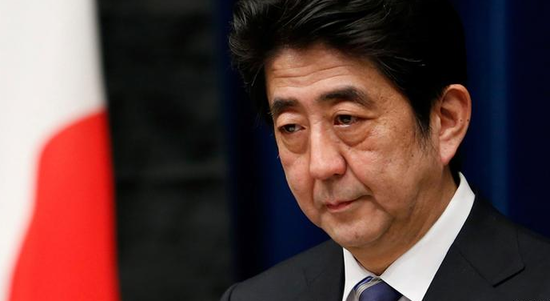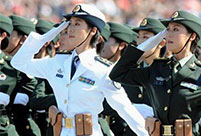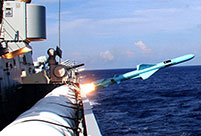

 |
The news that the "draft of Abe's statement contains an 'apology'" made the headlines all day on Japanese broadcaster NHK on Monday. According to the report, the statement to mark the 70th anniversary of the end of World War II by Japanese Prime Minister Shinzo Abe on Friday will also include key expressions used in the 1995 statement by then-prime minister Tomiichi Murayama, including "apology," "deep remorse," "aggression" and "colonial rule." This is so far the first report released saying that Abe's speech will cover this positive content.
Yet over the past few days, a number of Japanese media have been quoting a variety of inside information saying that Abe's remarks will not include terms like "apology." As the day that marks Japan's defeat in WWII approaches, how Abe will talk about it has been placed under global public scrutiny.
Abe's statement will reflect the future path of the country. If he only reflects on the wartime past but tries to blur the nature of the war by refusing to apologize, or avoiding mention of "aggression," the nation will face serious doubts over whether it is planning to ditch peaceful development, and means to reshape the political and historical pattern that formed after the war.
Abe has always been beating about the bush, trying to lower the world's anticipation of him echoing the spirit of the Murayama Statement. Not long ago, his cabinet voted through revisions of the country's security rules, which has triggered quite a few domestic protests. His domestic support rate has tumbled sharply, causing him unprecedented pressure since he assumed office as prime minister for the second time.
Abe might compromise, and add those key words from the 1995 Statement. Yet this is not as certain as a compromise to political pressure, rather than his own moral and political responsibility. His historical revisionism is known by all, and opportunism is universally considered as his main principle to adjust strategies over historical issues. Hence, there is a good chance that he may rewrite his statement draft at the last minute.
Accordingly, instead of the real historical recognition by Abe's administration, the speech will more likely mirror Abe's scheming and calculating among all the pros and cons in the power structure of the Asia-Pacific region.
Even so, a statement that can be accepted by the international community is still worth welcoming.
Abe's political logic is weird. He should realize that the US is Japan's biggest obstacle on the path toward becoming a "normal state." But he won't let go of the rivalry with China. Some suspect that Tokyo is eager to stay in the good graces of Washington, letting its guard down and seeking a chance to get rid of its control. However, Japan is unable to make that work.
Abe will find that his ability falls short of his wishes over his strategy in the Western Pacific. We hope he will make the right choice for his statement, whatever the reasons. And history will judge him fairly.
 Shocking scenes found in 4000-year-old earthquake relic
Shocking scenes found in 4000-year-old earthquake relic Female soldiers add color to military parades
Female soldiers add color to military parades Taiwan campus belle with gorgeous look
Taiwan campus belle with gorgeous look  Stunning photos of China’s fighters and airborne troops
Stunning photos of China’s fighters and airborne troops Mums stage breastfeeding flash mob
Mums stage breastfeeding flash mob PLA South China Sea Fleet conducts live fire exercise
PLA South China Sea Fleet conducts live fire exercise Beauty of Tsinghua University transforms into car model
Beauty of Tsinghua University transforms into car model Official shot having sex with two college girls
Official shot having sex with two college girls Moscow “spider-man” climbs Chinese skyscraper
Moscow “spider-man” climbs Chinese skyscraper Fiery freezer
Fiery freezer Bearly getting along
Bearly getting along Top luxury firms struggling in China
Top luxury firms struggling in China Japan reads too much into WWII parade
Japan reads too much into WWII paradeDay|Week